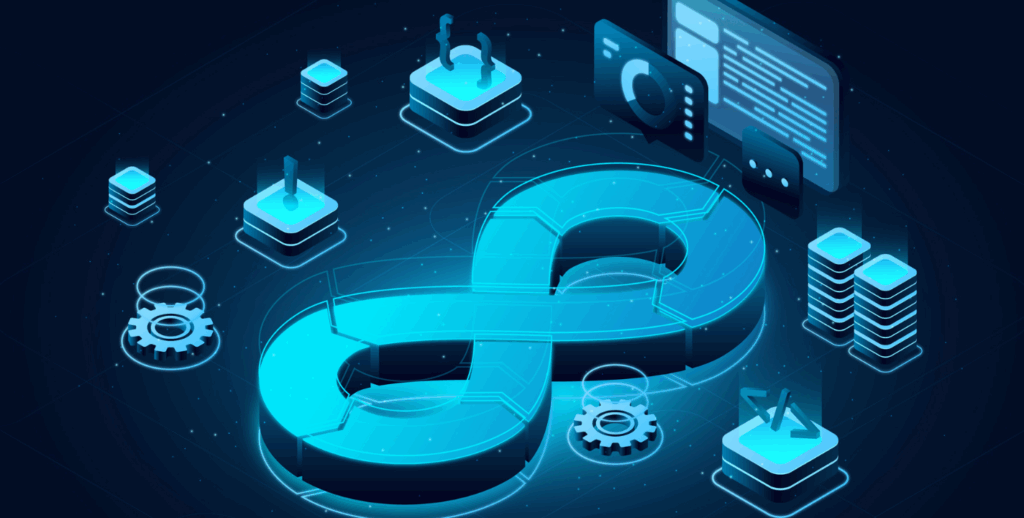In 2025, digital transformation isn’t just about moving to the cloud it’s about building smarter, more agile applications. AWS serverless architecture is emerging as a go-to solution for organizations aiming to reduce overhead, increase scalability, and maintain resilient systems.
Why Serverless Is the Future of Cloud-Native Development
Traditional infrastructure models often lead to bottlenecks and high maintenance costs.
Serverless computing benefits include:
- Automatic scaling of compute resources
- Pay-as-you-go pricing for optimized budgets
- Zero server management
- Built-in high availability
With cloud-native development models gaining momentum, serverless has become the cornerstone for rapid, agile development.
Key Building Blocks of AWS Serverless Architecture
AWS provides a powerful toolkit to develop
scalable cloud applications with minimal infrastructure hassle:
- AWS API Gateway: Seamlessly connects backend services with HTTP endpoints.
- AWS Fargate: Lets you run containers without managing servers, ideal for microservices.
- AWS Step Functions: Coordinate multiple AWS services into serverless workflows.
These tools help create robust event-driven architecture, critical for modern applications.
Use Case: E-Commerce Platform with Microservices
Imagine an online marketplace. Each function from processing payments to managing user carts runs as independent microservices on AWS. With
microservices on AWS, developers can:
- Deploy features faster
- Handle traffic spikes without downtime
- Isolate failures to minimize disruptions
All thanks to the flexibility and resilience of serverless.
Scalability and Resilience, Built In
Application resilience on AWS means your services can recover quickly from disruptions. Key elements include:
- Regional redundancy and fault tolerance
- Load-based automatic scaling
- Resilient retries and fallback mechanisms
These cloud scalability strategies ensure applications run reliably under pressure.
DevOps + Serverless = Streamlined CI/CD
Combining DevOps and serverless lets teams automate testing, deployment, and monitoring workflows. Tools like AWS CodePipeline and AWS CloudWatch integrate seamlessly with Lambda and Fargate, enabling:
- Faster development cycles
- Real-time issue detection
- Minimal manual intervention
This results in cost-efficient cloud apps with higher release velocity.
Security Considerations in Serverless
Security doesn’t take a backseat in serverless models. Key
serverless security considerations include:
- Identity and access management (IAM) for fine-grained permissions
- Data encryption at rest and in transit
- Monitoring through AWS CloudTrail and Amazon GuardDuty
These tools help maintain a secure, compliant environment.
Partnering with Experts for Serverless Success
Working with an AWS partner for serverless solutions ensures best practices are followed from day one. Grupdev, for instance, offers:
- Architecture consultation for performance and cost-efficiency
- DevOps automation for smooth deployments
- Ongoing support for continuous optimization
Explore Our Software Development Services at a Glance
Conclusion: The Time for Serverless is Now
In 2025, AWS serverless architecture is not just a trend it’s a proven strategy for building robust, scalable, and resilient applications. Businesses that adopt serverless are seeing faster innovation, lower operational costs, and greater flexibility.
If you’re ready to modernize your development practices, the serverless route is your competitive edge.
FAQ’s
What is AWS serverless architecture?
It allows developers to build and run applications without managing infrastructure. AWS handles provisioning, scaling, and server maintenance.
How does serverless improve scalability?
Serverless apps automatically scale with demand, ensuring consistent performance even during traffic spikes.
Is serverless secure?
Yes. AWS provides robust security tools like IAM, GuardDuty, and encryption protocols for serverless applications.
What are common serverless use cases?
Web applications, APIs, automation scripts, real-time data processing, and chatbots.
Can serverless work with DevOps?
Absolutely. Serverless services integrate with CI/CD pipelines to support modern DevOps workflows.



